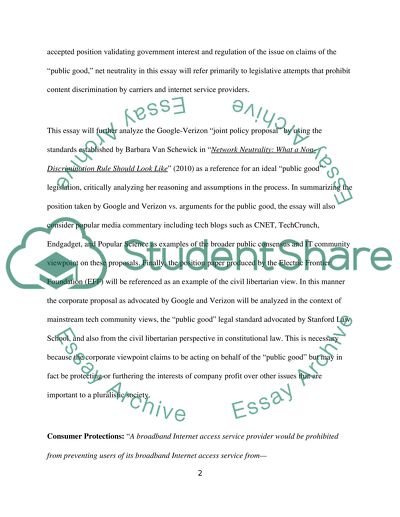Cite this document
(“Is Google and Verizon's Net Neutrality Proposal Socially Responsible Research Paper”, n.d.)
Retrieved from https://studentshare.org/family-consumer-science/1421580-is-google-and-verizon-s-net-neutrality-proposal
Retrieved from https://studentshare.org/family-consumer-science/1421580-is-google-and-verizon-s-net-neutrality-proposal
(Is Google and Verizon'S Net Neutrality Proposal Socially Responsible Research Paper)
https://studentshare.org/family-consumer-science/1421580-is-google-and-verizon-s-net-neutrality-proposal.
https://studentshare.org/family-consumer-science/1421580-is-google-and-verizon-s-net-neutrality-proposal.
“Is Google and Verizon'S Net Neutrality Proposal Socially Responsible Research Paper”, n.d. https://studentshare.org/family-consumer-science/1421580-is-google-and-verizon-s-net-neutrality-proposal.


